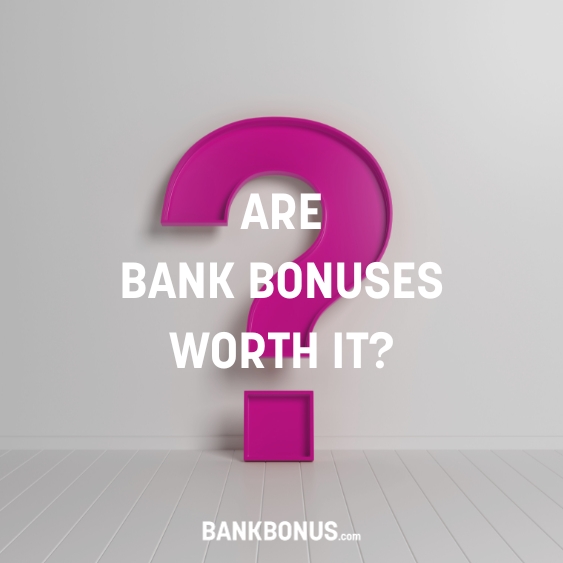No two banks are the same, and it’s important to choose the one that fits your needs and preferences.
There are a few key factors to consider as you compare banks, from account offerings and features to fees and accessibility. Read on to learn how to choose a bank to help you reach your financial goals.
How To Choose a Bank
Wondering how to choose the best bank? Whether you’re opening an account for the first time or looking to switch banks, the right bank for you should be a reflection of your financial goals.
Here are eight tips to help you pick the right bank to reach your financial goals:
- Understand Different Types of Banks
- Choose the Right Bank Account
- Look for Low-fee Banks
- Consider Branch and ATM Access
- Compare Account Features
- Check Out Reviews and Ratings
- Read the Fine Print
- Look at the Bank’s Additional Products
1. Understand Different Types of Banks
First, it’s important to understand the different types of banks that are out there. Once you do, you can narrow down your choices and focus on the services and features that are important to your banking experience.
Here are the main types of banks:
- Traditional Banks: Big national banks like Bank of America and Chase tend to have lots of fee-free ATMs and local branches, with a wide variety of financial services and well-constructed websites and mobile apps. The downside of bigger banks is that they often charge more fees and offer lower interest rates.
- Online Banks: Online banks have few or no branches. All of their services, like online banking, bill pay, and checking, are generally accessible online or on their mobile bank apps. Online banks are often able to provide more competitive interest rates and lower fees because they don’t carry all of the overhead that brick-and-mortar banks
- Credit Unions: Credit unions are member-owned non-profits that share profits with members. Due to their community-focused design, the best credit unions have a reputation for good customer service. You may also find better rates than traditional banks can offer, but since credit unions are locally based, their technology is typically a little behind.
- Neobanks: Neobanks are fintechs (financial technology companies) that partner with banks to provide user-friendly mobile banking While they lack branches, these institutions typically offer competitive interest rates and perks like early pay with direct deposit and overdraft protection.
2. Choose the Right Account
It’s also important to know what types of accounts each bank offers.
Here are the three most common types of accounts to choose from:
- Checking Account: A checking account provides all of the essentials for your everyday banking needs — a debit card, physical checks, and the ability to transfer funds and pay bills. When you take out cash from an ATM, it’s usually coming from this account. There are several types of checking accounts, such as premium or rewards checking and many banks offer free checking account options.
- Savings Account: Savings accounts are typically used to store emergency funds or set money aside for particular goals While you can take money out of a savings account, some banks have a limit on how many times you can withdraw money each month. High-yield savings accounts (HYSAs) are a type of savings account that typically offer a higher Annual Percentage Yield (APY) on your deposits than traditional savings accounts.
- Money Market Account: Money market accounts live somewhere between checking and savings. They’re interest-bearing and typically provide a bit more flexibility than a traditional savings account. What makes them different is that money market accounts generally require a higher account balance. In exchange, you may get higher interest rates.
- Certificates of deposits: CDs are a savings vehicle that reward you a set interest rate for setting aside your funds for a pre-determined amount of time anywhere from a few months to a few years. CDs offer some of the highest interest rates among deposit accounts, but they have less liquidity than online savings accounts.
3. Look for Low-fee Banks
A lot of digital banks have no monthly maintenance fees or overdraft fees, and some big banks make it easy to waive their monthly account fees.
As you compare your options, pay close attention to bank fees, such as checking account fees, overdraft fees, and out-of-network ATM fees. With careful planning, you can find a way around most bank account fees.
The key to avoiding unnecessary costs is to understand which fee-triggering behaviors you may be susceptible to. If you tend to overdraft your account, carry a low balance, or frequently transfer money out of your savings, you’ll want to choose a bank that offers overdraft protection.
If you like to have cash on hand, look for an account that doesn’t charge ATM fees. A lot of big national banks charge ATM fees if you use an out-of-network ATM. Online banks and credit unions often waive ATM fees or offer ATM fee reimbursement.
4. Consider Branch and ATM Access
It’s important to choose a bank that offers convenience.
For some, that might mean working with a local bank that has a branch in your hometown. If you travel a lot and want to be able to walk into a branch anywhere in the country, that could mean choosing a big national bank with thousands of branch locations.
And if you don’t care about having access to face-to-face customer service, you may find the convenience of mobile banking to be more advantageous, allowing you to make mobile check deposits and manage your account on the go.
You should also factor in ATM access. Look for a bank that has a vast ATM network, or one that reimburses out-of-network ATM fees.
Regardless of what conveniences you prize the most, be sure to factor accessibility into your decision.
5. Compare Account Features
One of the biggest steps to choosing the right bank is deciding which features are most important to you.
Here are a few common bank account features to consider:
- Interest: APY is the name of the game when it comes to earning interest with a bank account. Online banks tend to offer the best rates, with fewer operating costs than national and community banks. High-yield savings rates are typically better than checking rates as well. If you want to earn interest, compare rates from different types of institutions to see who offers the best rates.
- Cashback: Cashback rewards are another perk some banks offer, allowing you to make money when you swipe your card. If you’re interested in this account feature, you’ll want to open an account with a cashback debit card.
- Mobile features: As you compare online banking platforms, look for features like mobile deposits, early pay with direct deposit, online bill pay, and the ability to transfer funds to and from your account.
- Cash deposits: If you routinely deposit cash, make sure you partner with a bank that supports this activity. Not all online banks allow cash deposits, while some of them offer the service for a fee.
- Account minimums: Some banks have a minimum balance requirement to avoid fees and keep the account open. The last thing you want is to end up with a bank account that has a daily requirement outside your means. If you tend to keep a low balance, look for a bank that doesn’t require a minimum balance.
6. Check Out Bank Reviews and Ratings
Picking a bank with a positive reputation is crucial. As you compare banks, look at their customer service hours and ways to connect.
To gauge how banks interact with account holders, read customer reviews and check out third-party ratings from J.D. Power, the Better Business Bureau, and TrustPilot. You can also use expert reviews to assess a bank’s customer experience.
And it never hurts to reach out to family, friends, and colleagues to learn about their banking experience and recommendations.
7. Read the Fine Print
It’s important to understand the terms and conditions of your account when you sign up. Educate yourself on the bank’s requirements, fees, and expiration dates for bank bonuses.
It’s also crucial to bank with an institution that insures your funds. Most banks are insured by the Federal Deposit Insurance Corporation (FDIC), while most credit unions are insured by the National Credit Union Administration (NCUA) for up to $250,000 per customer and account type.
If the institution holding your money ends up failing, you’ll be covered for up to that amount if the bank is NCUA or FDIC-insured.
Likewise, read up on the bank’s security information to see how they protect your information and respond to cases of fraud.
8. Look at the Bank’s Additional Products
If you’re looking for more than a standard bank account, you’ll want to explore the other products and services the financial institution offers.
Many banks offer additional products, such as credit cards, mortgage loans, retirement accounts, and wealth management advising.
Keeping all of your accounts with the same institution can make life easier. If you’re early on in your personal finance journey, it might be a good idea to think down the road and choose a bank that can assist you with your future financial decisions, too.
Frequently Asked Questions
What are some things to look for when choosing a bank?
When choosing a bank, look into factors such as its reputation, security, features, and fees. Choose a bank that aligns with your financial situation and needs.
How do I choose a bank for the first time?
Getting your first bank account can be intimidating, but following the above steps and being honest with yourself about what you’re looking for will make it easier. Compare bank reviews, read first-hand user accounts, and try to learn as much as you can about each bank.
Your first experience with a bank should be simple and worry-free. You probably do not want to jump right into a complex money management platform before you fully understand your financial goals and how a bank can help you achieve them.
What are the best banks to bank with?
The best bank is the one that fits your individual needs. The best banks for a college student will differ from the best banks for small businesses. That being said, there are several watermarks of the best banks:
- They should be insured.
- They should have helpful and readily available customer service.
- They should have overall high customer satisfaction.
- And most of all, they should enable you to access your money and grow it over time.
What is the best type of bank account?
It depends. There’s no single bank account that meets everyone’s needs.
The best type of bank account is the one that matches your preferences. It also helps when the bank is transparent about what it can do for you and has a proven track record.
How to Find a Good Bank
Choosing the right bank for your financial needs is a crucial decision that shouldn’t be taken lightly.
By considering factors like fees, account options, accessibility, and customer service, you can make an informed choice that aligns with your goals and preferences.
Remember to research and compare different banks before making a final decision to ensure you find the best fit for your financial needs.





Read 1 comment
Read Comments